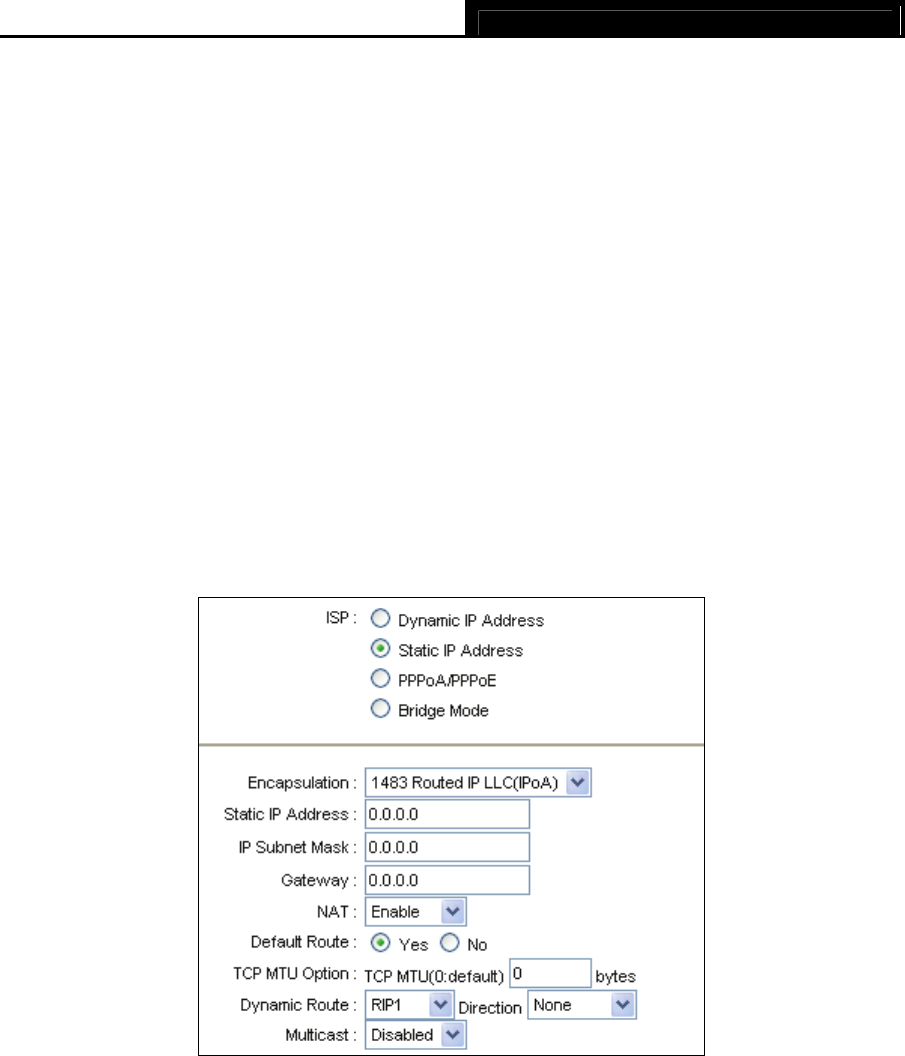
TD-8816 ADSL2/2+ Ethernet Router User Guide
17
for WAN interface, including RIP1, RIP2-B and RIP2-M. RIP2-B and RIP2-M are both sent in
RIP-2 format, the difference is that RIP2-M using Multicast, while RIP-2M using Broadcast
format.
• Direction: Select this option to specify the RIP direction. None is for disabling the RIP
function. Both means the ADSL Router will periodically send routing information and
accept routing information, and then incorporate them into routing table. IN only means
the ADLS router will only accept but will not send RIP packet. OUT only means the
ADLS router will only send but will not accept RIP packet.
¾ Multicast: Select IGMP version, or disable the function. IGMP (Internet Group Multicast
Protocol) is a session-layer protocol used to establish membership in a multicast group. The
ADSL ATU-R supports both IGMP version 1 (IGMP v1) and IGMP v2. Select “Disabled” to
disable it.
2. Static IP Address
Select this option if your ISP provides static IP information to you. You should set static IP
address, IP subnet mask, and gateway address in the screen below (shown in Figure 4-6).
Figure 4-6
)
Note:
Each IP address entered in the fields must be in the appropriate IP form, which is four IP octets
separated by a dot (x.x.x.x), such as 192.168.1.100. The Router will not accept the IP address if it
is not in this format.
3. PPPoA/PPPoE
Select this option if your ISP requires you to use a PPPoE connection. This option is typically
used for DSL services. Select Dynamic PPPoE to obtain an IP address automatically for your
PPPoE connection. Select Static PPPoE to use a static IP address for your PPPoE connection.
Please enter the information accordingly.


















